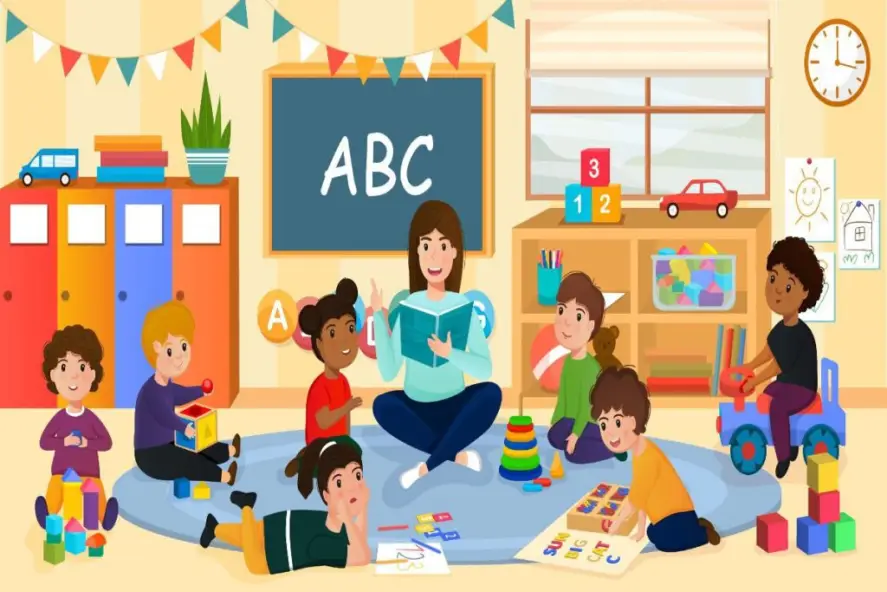As a licensed child-care administrator, you have completed the coursework, passed the examination, and obtained the experience necessary to obtain your license under Texas law. However, if you receive notice that someone has filed a complaint against you with Child Care Regulation (CCR), a division of Texas Health and Human Services, you likely will be taken off guard and uncertain where to turn first. No matter how unfounded the allegations against you may be, you should always take disciplinary complaints seriously to protect your professional license and career. Contacting an experienced Texas child-care administrator license defense lawyer should be your first step if you receive notice of a complaint against you.
Child-Care Administrator Licenses in Texas
Tex. Human Resource Code § 43.001(2) defines a child-care administrator as “a person who supervises and exercises direct administrative control over a child-care institution and who is responsible for its program and personnel, whether or not the person has an ownership interest in the institution or shares duties with other persons.” Under § 43.003, a person may not serve as a child-care administrator of a general residential operation without a child-care administrator license. A general residential operation, as per § 42.002(4), is “a child-care facility that provides care for seven or more children for 24 hours a day, including facilities known as residential treatment centers and emergency shelters.”
Grounds for Disciplinary Action Against a Child-Care Administrator License
Under § 43.010, CCR may deny, revoke, suspend, or refuse to renew a license or place on probation or reprimand a license holder for:
- violating any rules or laws applicable to child-care administrators;
- circumventing or attempting to circumvent any such rules or laws;
- engaging in fraud or deceit related to any such rules or laws;
- providing false or misleading information to CCR during the license application or renewal process for any person’s license;
- making a statement about a material fact during the license application or renewal process that the person knows or should know is false;
- having:
- a criminal history or central registry record that would prohibit a person from working in a child-care facility under rules applicable to that type of facility; or
- a criminal history relevant to the duties of a licensed child-care or child-placing administrator;
- using drugs or alcohol in a manner that jeopardizes the person’s ability to function as an administrator;
- performing duties as a child-care administrator in a negligent manner; or
- engaging in conduct that makes the license holder ineligible for:
- a permit for a facility or family home; or
- employment as a controlling person or service in that capacity in a facility or family home.
Disciplinary Proceedings for Child-Care Administrators
Under § 43.0106, f the CCR proposes to deny, revoke, suspend, or refuse to renew a child-care administrator’s license, the individual is entitled to ask for an administrative hearing before the State Office of Administrative Hearings (SOAH). During the appeal process, the individual may continue to work as a licensed child-care administrator unless CCR determines that allowing the individual to do so would pose an immediate threat to the health or safety of a child. The CCR must notify the individual, and if applicable, the governing body of the facility that employs the individual, of this determination.
Likewise, suppose the CCR denies the application for or revokes the license of a child-care administrator. In that case, the individual is entitled to notice of that decision and can ask the CCR to provide an appeal hearing under § 43.011. The CCR must hold the hearing within 30 days of the individual’s request. If, following the hearing, the CCR upholds its original determination, the individual may further appeal the decision by filing suit in the district court in the county where they live within 30 days of the date that the individual receives notice of the CCR’s final decision.
Potential Penalties for Violations by Child-Care Administrators
Placement on Probation
If CCR places a child-care administrator on probation, it can require the individual to do the following:
- to report regularly to the department on the conditions of the probation;
- to limit practice to the areas prescribed by the department; or
- to continue or renew professional education until the practitioner attains a degree of skill satisfactory to the department in areas where improvement is a condition of the probation.
If the individual violates a term or condition of probation, then CCR can revoke the individual’s probation under § 43.0105.
License Revocation
Suppose CCR revokes a child-care administrator’s license. In that case, the individual may not apply for this type of license or a child-placing administrator license for at least five years after the license was revoked.
Defend Yourself Against Disciplinary Proceedings Involving Your Child-Care Administrator’s License
Don’t allow an isolated complaint to wreak havoc on your career. Losing your ability to support yourself will only worsen your situation. If you are facing the loss of your child-care administrator’s license, we can help you take the steps necessary to challenge the disciplinary proceedings you are facing. Contact a child-care administrator license defense attorney at Bertolino LLP, for advice today. Make an appointment by calling (512) 515-9518 or contact us online to see how we can help.
Call or text (512) 476-5757 or complete a Case Evaluation form


